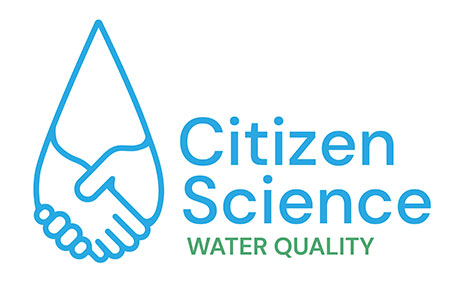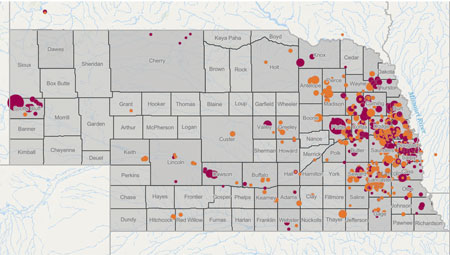SURVEY: Understanding Participant Perspectives and Barriers to Engagement in Water Quality Citizen Science Research

The SuWell Community Water Project, also known as the Citizen Science + Water Quality initiative at the University of Nebraska-Lincoln is interested in exploring barriers to participation in citizen science programs and ways to improve participant experiences with the program. To volunteer in the research study, prior participation in the SuWell Community Water project is not required. Anyone 19 years of age or older that lives in Nebraska is applicable.
The Program
What?
Good water quality is important to the health of the public. In communities surrounded by agriculture, there is potential for contamination of water resources by manure and fertilizer application. Nitrate and phosphate are plant nutrients needed for improved growth, but excesses of these nutrients cause adverse impacts on water resources. Excess plant nutrients also pose a health risk to those who depend on these water resources. The goal of our program is to measure levels of plant nutrients present in well water, rivers and streams across Nebraska.
The reason we are testing private wells on farms is to give an opportunity to farm families to improve their health by identifying potential contamination of drinking water supplies by excess nutrients. This program is not affiliated with or under the direction of any regulatory body, such as the U.S. EPA.
Who?
This program is administered by Dr. Shannon Bartelt-Hunt in the Department of Civil and Environmental Engineering at the University of Nebraska-Lincoln
How?
The program will provide all testing materials to volunteers. Volunteers will measure the concentrations of key nutrients, nitrate and phosphate, using rapid test strips that provide an accurate and reliable results in less than 1 minute. All volunteers will receive training to ensure that they are comfortable with the tools provided.
The information that you collect will be sent to the University of Nebraska, by either mail or email, for analysis. Expert faculty and staff will answer questions and provide feedback to you on the levels of plant nutrients in the water that you tested. As a volunteer, you are will be kept informed about the results of this program and alerted to future opportunities to improve your water resources.
When?
We need volunteers during one or more of these testing periods in 2024.
May 1-31
September 1-30
- You will only need to measure your well water and/or local waterway once during each of these 4-week periods.
- If desired, you may have the opportunity to measure multiple locations along a river, tributary, or numerous wells.
To volunteer:
If you are interested in volunteering to measure plant nutrients in your water, please contact us using the information below. Please provide your name, preferred phone number and/or email address.
Shannon Bartelt-Hunt
University of Nebraska
402-554-3868 | sbartelt2@unl.edu
1110 S. 67th St
Omaha, NE 68182-0178
Thank you for considering this opportunity to participate in monitoring your water resources!
The University of Nebraska does not discriminate based on race, color, ethnicity, national origin, sex, pregnancy, sexual orientation, gender identity, religion, disability, age, genetic information, veteran status, marital status, and/or political affiliation in its programs, activities, or employment.
